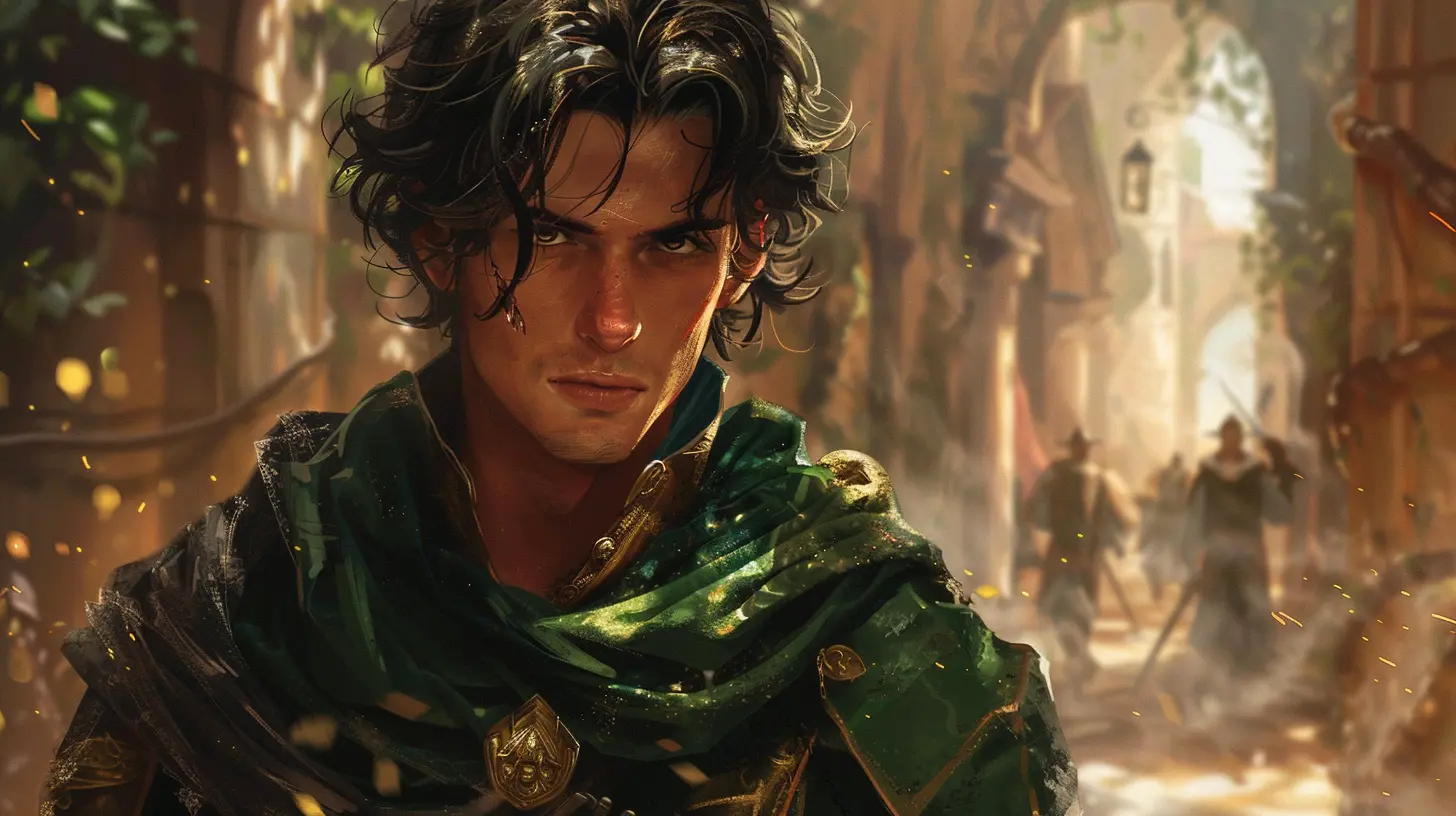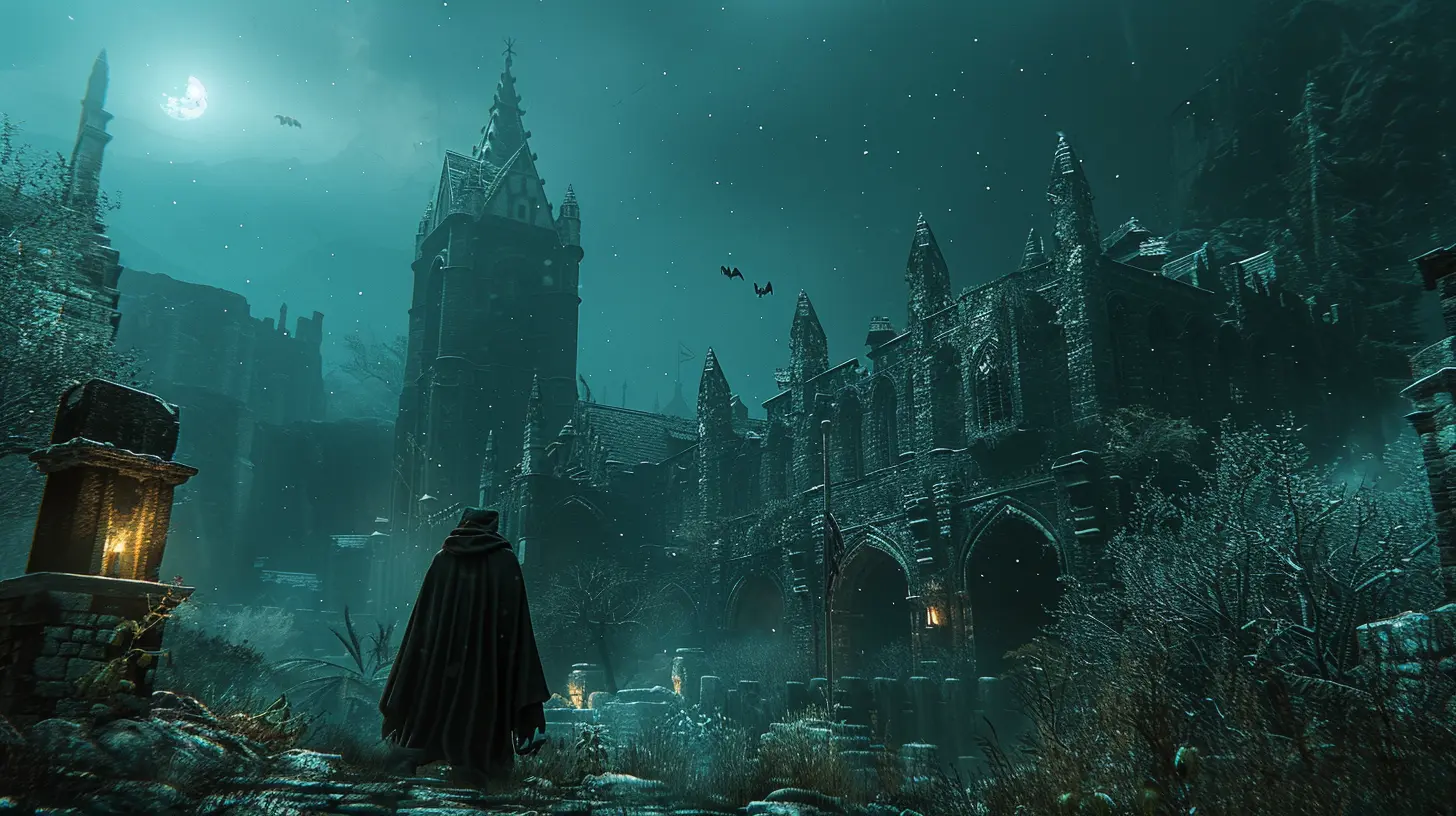The Art of Subtlety: Hidden Stories and Secrets That Shape RPG Universes
13 October 2025
When you boot up an RPG, what’s the first thing that grabs your attention? The sprawling landscapes? The complex character builds? Maybe the juicy main storyline that promises hours of immersive play? All of these are awesome, no doubt—but there’s something else, something more elusive, that keeps you thinking about that game long after you’ve saved the world (again). That’s the hidden layer. The secrets. The lore tucked away in item descriptions, whispers from NPCs in the shadows of taverns, and notes you almost missed in the back of an abandoned shack.
Welcome, friend, to the art of subtlety in RPGs—a craft that turns a good game into a legendary experience.
Why Hidden Stories Even Matter
Let’s get real for a sec. Games are big. Like, really big. With main quests, sidequests, collectibles, crafting, and companions who all want your attention, it’s easy to overlook the quieter details. But here's the thing: those hidden stories often carry the emotional weight or world-building depth that transforms a static environment into a living, breathing universe.Think of an RPG world like an iceberg. The main quest? That’s the tip above water. But the submerged part—the one you have to dive into? That’s where the magic lies. The deeper you go, the more you realize how much thought and care developers put into making the world feel real.
World-Building Through Whispered Legends
You might think world-building relies solely on big, flashy moments—epic battles, ancient prophecies, chosen heroes. But truthfully, the strongest RPG universes are built through whispered stories—stuff you stumble upon unintentionally.Take the Souls series, for example. If you’ve played even a couple of hours, you know the game doesn’t spoon-feed you anything. Lore is dripped through cryptic item descriptions and vague dialogue. Yet through these crumbs, players piece together a rich, haunting history full of fallen kingdoms, cursed bloodlines, and broken gods.
The beauty? You earn the lore. You become an archaeologist of the digital world, unearthing fragments of a fallen age with each discovery. That process builds investment. Suddenly, it’s not just a boss fight—it’s a tragic encounter with a once-noble warrior, now hollowed and broken.
Environmental Storytelling: A Silent Masterpiece
Sometimes, a story doesn’t need words at all. That eerie, blood-splattered corridor? It’s telling you something. That burned-down village with a child’s toy lying forgotten amidst the rubble? Yeah, that hurts more than any cutscene ever could.Environmental storytelling often goes unnoticed because it doesn’t interrupt your gameplay. But when you stop and look around, entire narratives unfold. Games like The Witcher 3 and Skyrim thrive on this. That cave you wandered into just for loot? There’s a skeleton beside a love letter. Boom—short, sweet, and heartbreakingly human.
It’s a reminder that real stories don’t always scream—they whisper.
Side Quests with Soul
Side quests can be throwaway fetch missions…or they can rip your heart out. What separates the two? Subtlety. Nuance. Writers who understand that not everything needs to be about saving the world.Let’s talk about Mass Effect. Sure, it’s a space opera about galactic extinction, but what sticks with players are the small moments: helping a grieving crew member mourn their family, or choosing whether to intervene in a couple’s quiet argument over military duty. These aren’t epic quests—but they speak volumes.
The best side quests don’t feel like side content at all. They feel like little windows into the soul of the game world. Sometimes, they raise questions with no easy answers—and that’s the point. Life’s complicated. Good RPGs know that.
The Power of Unreliable Narrators
Here’s a juicy one: can you even trust what you’re told? Games with unreliable narrators, conflicting accounts, or biased perspectives blur truth and fiction. It’s up to you to put the puzzle together, and that’s endlessly engaging.In games like Disco Elysium, you’re not just listening to a narrator—you’re arguing with pieces of your own broken psyche. Different skills talk to you, influencing decisions, spinning the story in their favor. Suddenly, you’re not playing a detective—you are the detective, confused and flawed, chasing down a truth that might not exist.
This is where the hidden stories shine. Because when every bit of lore—every voice, every clue—carries bias or mystery, you start questioning everything. That’s more powerful than any cinematic plot twist.
Lore-Hunting: The Ultimate Side Hustle
Let’s be honest. Some of us get a little addicted to digging through the wikis, Reddit threads, and fan theories. We read every codex entry, every scribbled note, like digital detectives solving some grand narrative conspiracy.If you’ve fallen down the rabbit hole of a FromSoftware game or sat through hours of VaatiVidya videos (you know who you are), you know how satisfying that rabbit hole can be. In fact, some players spend more time lore-hunting than actually playing the game.
But that’s not a bug—it’s a feature. When a game’s hidden stories are good enough to make people gather like lore cultists in forums, you know the developers did something right. They didn’t just build a game; they built a mythology.
Not Just for the Hardcore
Now, you might be thinking, “All this sounds cool, but I’m not a min-maxing, lore-tracking, wiki-diving player.” That’s totally fair. The beauty of this kind of storytelling is that you can engage with it however much you want.You can play The Elder Scrolls V: Skyrim and ignore the books lying around. Or you can read every one, uncovering the politics, deities, and forgotten histories that explain why the world is the way it is.
It’s like a buffet—you take what you want, and leave the rest. There’s no wrong way to enjoy an RPG. But when you're ready to dig deeper, the game whispers, and the story unfolds in ways you never expected.
Developers as Dungeon Masters
Behind every hidden story is a writer, designer, or developer who acts like a dungeon master. They know you might find that hidden room. You might read the note in the burned-out shack. But whether you do or don’t—that’s up to you.In a weird way, this makes RPGs feel personal. These stories weren’t just thrown in to pad content. They feel like secrets just for you—like an inside joke between you and the creators. It’s one of the few moments in gaming where you feel directly communicated with, without a single line of dialogue.
The Emotional Punch of Secrets
Let’s not pretend these hidden stories are just for lore nerds. Sometimes, they hit you like a freight train. A quiet note found on a corpse. A piece of music that plays in a forgotten location. A seemingly random encounter that echoes something from 20 hours earlier.These moments sneak up on you, and when they land, they hit hard. Because they were optional. They were unexpected. And that’s what makes them unforgettable.
You didn’t need to go down that path—but you did. And now, you’re changed for it.
Famous Hidden Story Moments That Changed the Game
If you want some examples of this subtle craft in action, here are a few iconic ones:- Dark Souls – The story of Artorias and Sif, told without a single cutscene until the very end. If you know, you know. And you probably teared up.
- Red Dead Redemption 2 – The ghost stories, the vampire in Saint Denis, and the mysterious time traveler—all hidden, all mind-blowing.
- Elden Ring – So much of the world’s epic tale is hidden in item descriptions and cryptic NPC lines. A whole Empire’s fall in a single sentence? That’s peak subtlety.
- Deus Ex – Emails, newspapers, and overheard conversations give players a peek into a conspiracy only they can uncover—if they’re paying attention.
- Bioshock – The audio diaries you collect slowly unravel the true horror of Rapture, often more chilling than any boss fight.
These gems aren’t thrust into your face. You find them because you’re curious—not because the game demanded it.
Final Thoughts: Listening Between the Lines
So here’s the truth: the best RPGs aren’t just about sword-swinging and spell-casting. They’re about listening between the lines. They’re about curiosity, exploration, and the quiet satisfaction of piecing together a world one subtle clue at a time.Subtlety doesn’t mean shallow. It means sophisticated. Crafted. Intentional.
So next time you're wandering through a fantasy realm or cyberpunk city, slow down. Read the notes. Talk to the strange NPCs. Look around the corners developers don’t expect you to check.
Because the real heart of an RPG? It’s hidden in silence. Waiting for you to find it.
all images in this post were generated using AI tools
Category:
Fantasy RpgsAuthor:

Jack McKinstry
Discussion
rate this article
1 comments
Alice McPherson
Subtlety is the heartbeat of RPG storytelling. It's these hidden narratives that elevate the experience, inviting players to explore beyond the surface. Truly, the best tales are often those left unspoken.
October 23, 2025 at 3:47 AM

Jack McKinstry
Absolutely! Subtlety enriches RPGs, encouraging deeper exploration and engagement with the world. Hidden narratives truly elevate the storytelling experience.


